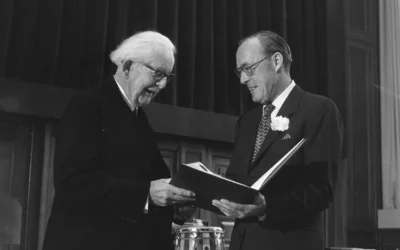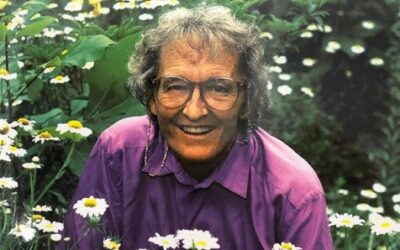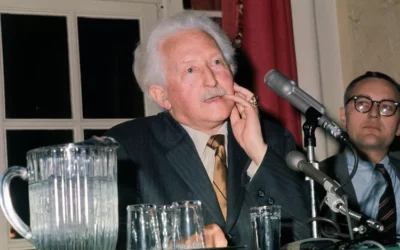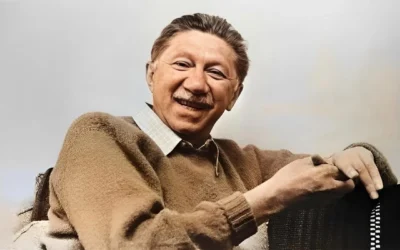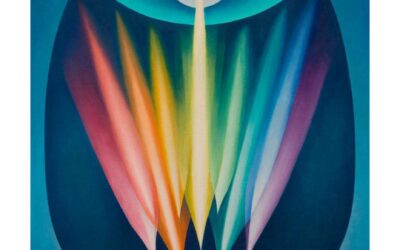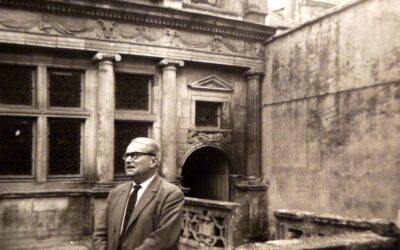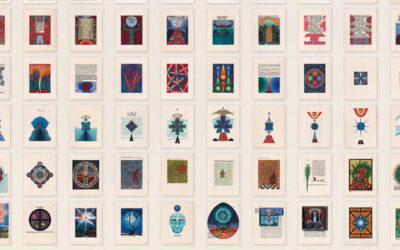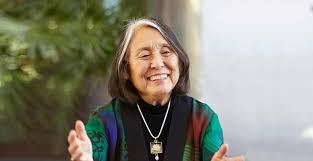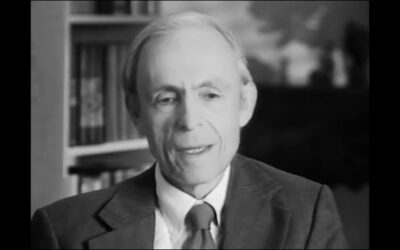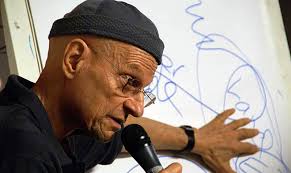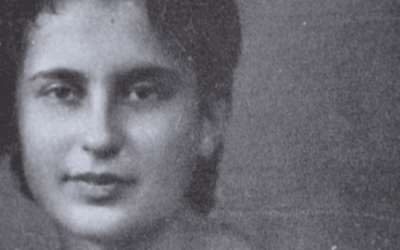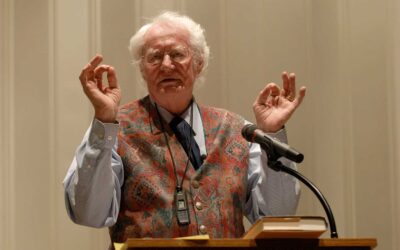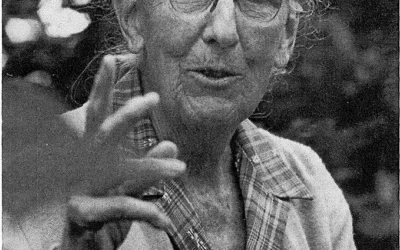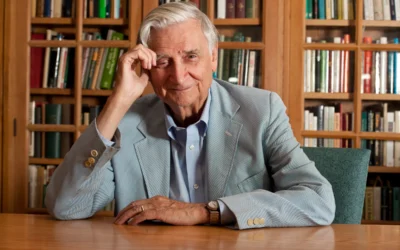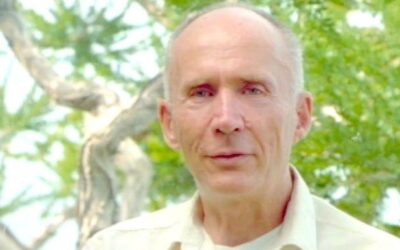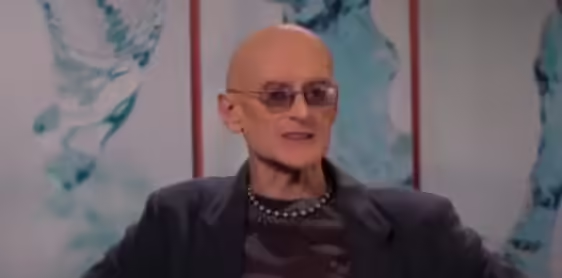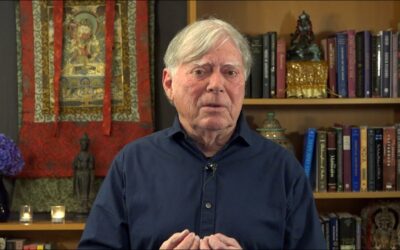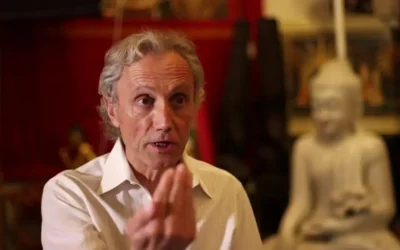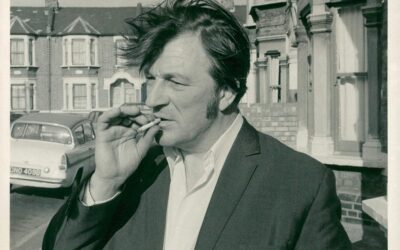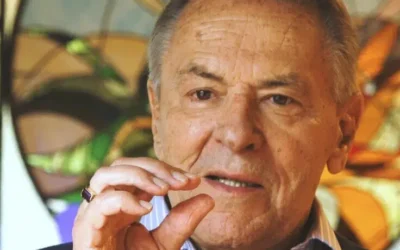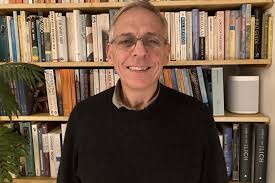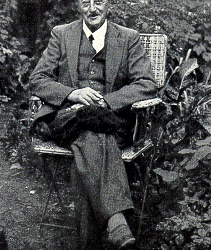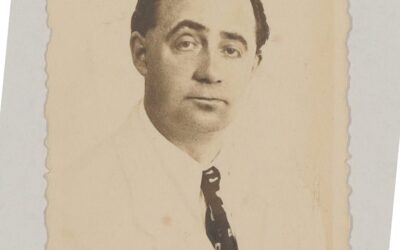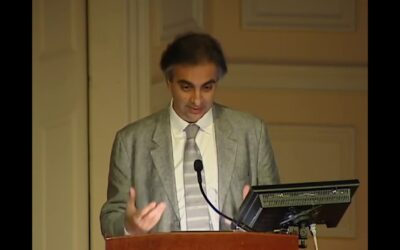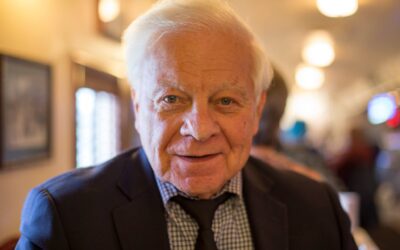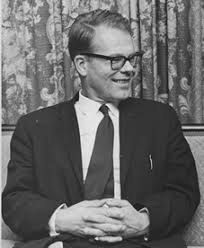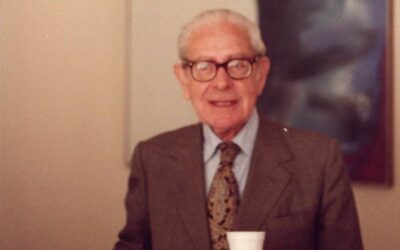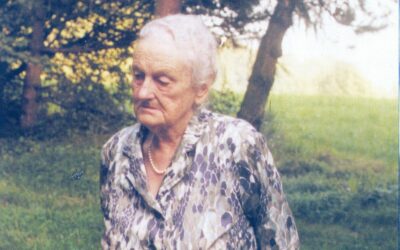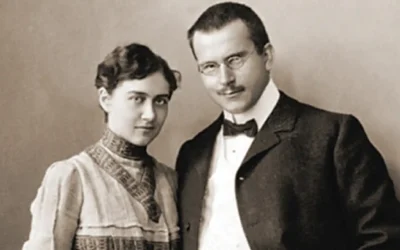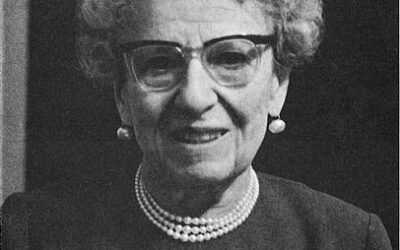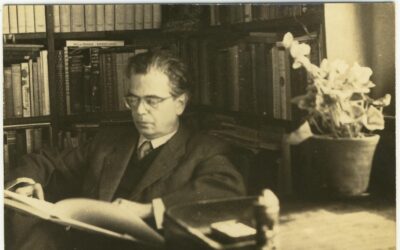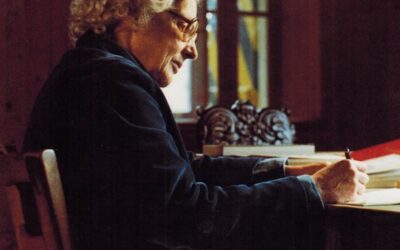Who was Jean Piaget? 1. Overview Jean Piaget (1896-1980) was a Swiss psychologist and epistemologist who revolutionized our understanding of cognitive development in children. His groundbreaking work laid the foundation for the field of genetic epistemology and...
a
Welcome to the Taproot Therapy Collective Blog, your deep‑dive space into trauma‑informed therapy, depth psychology, and the cultural forces shaping mental health today. Authored by our licensed clinicians in Birmingham, Alabama, our posts span from Jungian insights and somatic healing to evidence‑based modalities like EMDR and neuromodulation, as well as explorations of micro‑nutrition and media psychology. Each article aims to illuminate how psyche, body, and society intertwine—whether we’re unpacking the weaponization of collective trauma in our digital era or investigating how somatic trauma mapping helps track pain that lives inside the body.
Our blog extends beyond Birmingham’s office walls, offering trusted guides on practices like dream analysis through a Jungian lens and methods for shadow work and intergenerational healing. We also highlight local pulse by sharing resources for therapists and mental health seekers in Alabama, from expressive‑arts workshops to CEU‑accredited community trainings. Designed for both mental health professionals and curious individuals, our writing bridges clinical depth with cultural relevance—engaging with everything from architecture’s psychological impact and mythology’s role in identity to design, film, ritual, and the intricate psychology underpinning conspiracy and belief systems.
If you seek a mental health conversation that honors both the interior journey and the social context we inhabit, explore our categorized sections—such as Neuroscience and the Brain, Mythology and Therapy, and Psychology of Media and Culture—to find articles that resonate. Join us as we map the roots of psychic distress while cultivating possibilities for growth, resilience, and meaningful connection.
Search the Blog by Category
Elisabeth Kübler-Ross: Pioneer of Death and Dying Studies
Who was Elisabeth Kübler-Ross? Elisabeth Kübler-Ross (1926-2004) was a Swiss-American psychiatrist who transformed the way society understands and approaches death, dying, and bereavement. Her groundbreaking work in thanatology - the study of death-related practices...
Erik Erikson: Life, Theory, and Legacy in Developmental Psychology
Who was Milton Erikson? Early Life and Education Erik Erikson was born on June 15, 1902, in Frankfurt, Germany to Karla Abrahamsen, a young Jewish woman. The identity of Erikson's biological father was unknown, as Karla had become pregnant before her marriage. When...
Abraham Maslow’s Enduring Legacy and Impact on Psychology and Beyond
Who was Abraham Maslow? Abraham Maslow was one of the most influential psychologists of the 20th century, leaving an indelible mark on the field of psychology and shaping our understanding of human motivation, potential, and well-being. His groundbreaking theories,...
The Psychology of Color: What effect does color have on brain function?
The Impact of Color on Somatics and Cognition: Insights from Emotional Transformation Therapy Color plays a profound role in shaping our emotional experiences and cognitive processes. The therapy modality Emotional Transformation Therapy (ETT), pioneered by Dr. Steven...
How to Understand the Origins of Prehistoric Religion?
What Can the Origins of Religion Teach Us? The origins and evolution of human religious like thought have long fascinated scholars, but they may also hold the keys to therapy and religion. . By examining the archaeological record, mythological narratives, and the...
The Acolyte: Exploring the Jungian Roots of Star Wars and the Duality of the Force
SPOILERS for Episode 6 and 7 of Disney+'s new show the Acolyte Carl Jung and the Force As Disney's hit series The Acolyte delves into the mysterious world of the Sith and their relationship with the Force, it appears to be taking the Star Wars franchise back to its...
Henry Corbin: Visionary of the Imaginal Realm
Who was Henry Corbin? Henry Corbin (1903-1978) was a groundbreaking French philosopher, theologian, and Islamicist whose visionary work unveiled the power of the imaginal realm. Corbin's unique approach synthesized Islamic mysticism, Western philosophy, Jungian...
Understanding Carl Jung’s The Red Book
Carl Jung's The Red Book: A Journey into the Collective Unconscious Carl Gustav Jung (1875-1961), the renowned Swiss psychiatrist and founder of analytical psychology, left an indelible mark on the field of depth psychology with his groundbreaking concepts of...
Jean Shinoda Bolen, M.D.: Mapping the Deep Feminine Psyche
Who is Jean Shinoda Bolen? Jean Shinoda Bolen, M.D. (1936-present) is a acclaimed psychiatrist, Jungian analyst, and author who has made groundbreaking contributions to the fields of depth psychology, women's spirituality, and archetypal studies. Drawing upon...
The Archetypal Psychology of Edward Edinger: Illuminating the Process of Individuation
Who Was Edward Edinger? Edward F. Edinger (1922-1998) was a prominent American psychiatrist, analyst, and author who made significant contributions to the field of analytical psychology. As one of the leading interpreters of Carl Jung's work in the United States,...
The Psychology of Selves: The Pioneering Work of Hal and Sidra Stone
Who were Sidra and Hal Stone? 1.1. The Stones' Journey from Traditional Analysis to Voice Dialogue Hal and Sidra Stone, the creators of the innovative therapeutic modality known as Voice Dialogue, began their careers as traditional Jungian analysts. However, over time...
Arnold Mindell and Process-Oriented Psychology: Pioneering a Path Beyond Jungian Analysis
Who is Arnold Mindell? Arnold Mindell is a pioneering figure in the field of depth psychology who has made significant contributions through his development of process-oriented psychology, also known as process work. Mindell's approach represents a creative synthesis...
Sabina Spielrein: Individuation through Paradoxes
Who was Sabina Spielrein? Sabina Spielrein (1885-1942) was a pioneering Russian psychoanalyst whose innovative theories of sexuality, destruction, and transformation shaped the early development of psychoanalysis. Over a brief but brilliant career cut short by the...
Robert Bly: Psychology Through Poertry
Who was Robert Bly? "If a culture does not deal with the warrior energy—take it consciously, discipline it, honor it—it will turn up outside in the form of street gangs, wife beating, drug violence, brutality to children, and aimless murder." Robert Bly (1926-2021)...
Esther Harding and the Reclamation of the Feminine in Depth Psychology
Who was Esther Harding? "The recovery of the feminine, she suggests, is essential not only for women's psychological and spiritual thriving but also for the healing of the world." Esther Harding (1888-1971) was a pioneering American Jungian analyst, author, and...
The Ecology of Enchantment: David Abram’s Earth-Centered Philosophy
Who is David Abram? "For the first time in history, the human species has seen fit to wander into the realm of the gods, and we have no clue what we are doing here." David Abram (1957-) is a groundbreaking American ecologist, philosopher, and cultural theorist whose...
Bridging the Two Cultures: Edward O. Wilson’s Legacy in Science and the Humanities
Who was Edward O Wilson? Edward O. Wilson (1929-2021) was a pioneering American biologist, naturalist, and writer who made seminal contributions to the fields of ecology, evolution, and sociobiology. As one of the most influential scientists of the late 20th century,...
Sean Kane: Illuminating the Wisdom of Myth, Nature, and the Human Experience
Who is Sean Kane? Sean Kane is a respected storyteller, wilderness guide, and author whose work explores the profound connections between myth, ritual, wilderness, and the human experience. Through his books, workshops, and expeditions, Kane has illuminated the...
Robert A Johnson: Healing Through Mythopoetics
Who was Robert A Johnson? Robert A. Johnson (1921-2018) was a renowned American Jungian analyst, lecturer and author known for his accessible and practical interpretations of Jungian concepts for a general audience. Over his long career, Johnson published a number of...
Ken Wilber: Mapping the Integral Vision
Who is Ken Wilbur? Ken Wilber (1949-present) is a pioneering American philosopher and writer whose groundbreaking "integral theory" has sought to synthesize insights from a dazzling array of fields - including psychology, anthropology, sociology, biology, ecology,...
Michael Meade: Mythopoetic Wisdom for a Troubled World
Michael Meade: Mythopoetic Wisdom for a Troubled World Who is Michael Meade? In a time of global crisis and cultural upheaval, the work of Michael Meade offers a beacon of hope and renewal. As a mythologist, storyteller, and scholar, Meade has spent decades exploring...
Richard Tarnas: Cultural History Through Astrology
Who is Richard Tarnas? Richard Tarnas (b. 1950) is a pioneering American cultural historian and philosopher whose innovative theories of human history, consciousness, and cosmology have transformed the study of culture, psychology, and spirituality. Over a prolific...
Marion Woodman: Pioneering the Conscious Feminine and the Embodied Soul
Who was Marion Woodman? Marion Woodman (1928-2018) was a groundbreaking Canadian mythologist, Jungian analyst, and author who pioneered the exploration of feminine psychology and spirituality. Over a prolific career spanning five decades, Woodman developed a profound...
Lionel Corbett: Exploring the Psyche, Spirituality, and the Sacred
Who is Lionel Corbett? Lionel Corbett (1945-) is a prominent Jungian analyst, professor, and author whose innovative theories on the relationship between psychology, spirituality, and the sacred have made significant contributions to the fields of depth psychology,...
Who is Ginette Paris?
Ginette Paris (1945-) is a French-Canadian psychologist, scholar, and author whose work explores the interplay of mythology, psychology, and spirituality in the modern world. Drawing on the depth psychology of C.G. Jung, the mythological studies of Joseph Campbell,...
The Anthropology of Victor Turner: Ritual, Liminality, and Cultural Performance
Who is Victor Turner? Victor Turner (1920-1983) was a pioneering British cultural anthropologist whose innovative theories of symbols, ritual, and performance transformed the study of human society and culture. Over a prolific career spanning four decades, Turner...
Stanislav Grof and the Exploration of the Human Psyche: A Visionary Journey into Holotropic States and Transpersonal Realms
Who was Stanislav Grof? Stanislav Grof, born in 1931 in Prague, Czechoslovakia (now Czech Republic), is a psychiatrist, researcher, and pioneer in the field of transpersonal psychology. His groundbreaking work has explored non-ordinary states of consciousness,...
The Interpersonal Neurobiology of Allan N. Schore: Exploring the Developmental Origins of the Self
Who is Allan Shore? Allan N. Schore, Ph.D. is a pioneering researcher and theoretician whose work has revolutionized our understanding of human development, the emergence of the self, and the process of therapeutic change. Drawing on cutting-edge research from...
The Archetypal Psychology of Steven Mithen: Exploring the Evolution of the Mind
The Archetypal Psychology of Steven Mithen: Exploring the Evolution of the Mind Who is Steven Mithen? Steven Mithen is a leading British archaeologist and anthropologist whose work has revolutionized our understanding of the evolution of the human mind. Drawing on a...
Arnold van Gennep and the Rites of Passage: Illuminating the Structure of Human Transitions
Who Was Arnold van Gennep? Arnold van Gennep (1873-1957) was a pioneering French anthropologist and folklorist who made significant contributions to the study of rituals, particularly rites of passage. His seminal work, "Les rites de passage" (The Rites of Passage),...
Heinrich Zimmer: East Meets West
Who Was Heinrich Zimmer? Heinrich Zimmer (1890-1943) was a German Indologist, linguist, and historian of South Asian art who made significant contributions to the Western understanding of Hindu and Buddhist thought. Born in Greifswald, Germany, Zimmer studied Sanskrit...
The Archetypal Psychology of June Singer: Exploring the Creative Unconscious
Who Was June Singer? June Singer (1920-2004) was a renowned Jungian analyst, author, and educator who made significant contributions to the development of analytical psychology. Her work focused on exploring the creative potential of the unconscious and integrating...
The Evolutionary Psychology of Louise Barrett: Situating Cognition in the Dynamics of Life
Who is Louise Barrett? Louise Barrett is a professor of psychology and behavioral ecology at the University of Lethbridge in Canada. She is a prominent researcher in the fields of evolutionary psychology and animal cognition, known for her innovative approaches that...
50 Common Symbols of the Shadow in Dreams
Introduction to Jungian Dream Interpretation: Exploring the Shadow through Symbols Carl Jung, the renowned Swiss psychiatrist and psychoanalyst, believed that dreams serve as a bridge between the conscious and unconscious mind, offering valuable insights into an...
Introduction to Jungian Dream Interpretation
Introduction to Jungian Dream Interpretation Carl Jung, the renowned Swiss psychiatrist and psychoanalyst, believed that dreams serve as a bridge between the conscious and unconscious mind, offering valuable insights into an individual's psyche. In Jungian psychology,...
Thomas Moore: A Compelling Vision for the Soul
Who is Thomas Moore? Thomas Moore (1940-) is a renowned psychotherapist, former monk, and bestselling author known for his influential writings on the soul and the art of living. His work, blending depth psychology, spirituality, and poetic wisdom, has played a...
David Tacey: Innovation and Restoration of the Jungian Tradition
Who is David Tacey? David Tacey (1953-) is a prominent Australian scholar and thinker known for his unique contributions bridging analytical psychology, spirituality, and cultural studies. As a leading figure in post-Jungian thought, Tacey has built upon and extended...
Sonu Shamdasani: The Red Book and Keeping Jung Relevant
Sonu Shamdasani: Reframing Jung's Legacy through Historical Scholarship Sonu Shamdasani, a distinguished professor at University College London and a prolific author, has emerged as one of the most influential figures in the field of Jung scholarship. As a historian...
James Hollis and the Psychodynamics of the Self
Who is James Hollis? James Hollis is a prominent contemporary Jungian analyst, educator, and author who has made significant contributions to the study of midlife, aging, and the archetypal patterns that shape the psyche. Born in 1940 and educated at Manchester...
Adolf Guggenbühl-Craig: A Innovator in the Cultural Dimension of Myth
Who Was Adolf Guggenbühl-Craig? Adolf Guggenbühl-Craig was a Swiss Jungian analyst and a notable figure in the field of analytical psychology. Born on August 6, 1932, in Basel, Switzerland, his upbringing in a culturally rich environment deeply influenced his...
Gerhard Adler: A Pioneer in Jungian Analytical Psychology
Who was Gerhard Adler? Gerhard Adler (1904-1988) was a distinguished Jungian analyst and a prominent figure in the field of analytical psychology. His work as a clinician, scholar, and teacher significantly shaped the development of Jungian theory and practice in the...
Joseph Henderson: Bridging Cultural Contexts and Analytical Psychology
Who was Joseph Henderson? Joseph Henderson (1903-2007) was a prominent figure in the field of analytical psychology, best known for his work on cultural attitudes and the concept of the cultural unconscious. A key collaborator of Carl Jung and a founding member of the...
Michael Fordham: Integrating Developmental Psychology with Analytical Psychology
Who was Michael Fordham? Michael Fordham (1905-1995) was a seminal figure in the field of analytical psychology, renowned for his innovative work that bridged the gap between Jungian theory and developmental psychology. As one of the founding members of the Society of...
Barbara Hannah: Jungian Analyst, Teacher, and Biographer
Who was Barbara Hannah? Barbara Hannah (1891-1986) was a distinguished Jungian analyst, teacher, and author who made significant contributions to the field of analytical psychology. As one of the first generation of Jungian analysts, Hannah played a crucial role in...
Emma Jung as a Psychologist
Who was Emma Jung? Emma Jung (1882-1955) was a Swiss psychoanalyst and author who made significant contributions to the field of analytical psychology. Though often overshadowed by her famous husband, Carl Gustav Jung, Emma was a formidable intellectual in her own...
The Archetypal Psychology of Anthony Stevens: Synthesizing Evolutionary Science and Depth Psychology
Who was Anthony Stevens? Anthony Stevens (1933-2021) was a prominent Jungian analyst, psychiatrist and prolific author who made significant contributions to the fields of evolutionary psychiatry, archetypal psychology, and the cross-cultural application of Jungian...
The Archetypal Psychology of Jolande Jacobi: Exploring the Realms of the Unconscious
Who was a Jolande Jacobi? Jolande Jacobi (1890-1973) was a Swiss psychologist, author, and close associate of Carl Jung who made significant contributions to the development of analytical psychology. As one of the first generation of Jungian analysts, Jacobi played a...
The Archetypal Psychology of Erich Neumann: Exploring the Origins and Development of Consciousness
Who was Erich Neumann? Erich Neumann (1905-1960) was a prominent German psychologist, philosopher, and scholar who made seminal contributions to the field of analytical psychology. A close collaborator and protégé of Carl Jung, Neumann played a key role in expanding...
The Archetypal Psychology of Marie-Louise von Franz
Illuminating the Objective Psyche Who was Marie-Louise von Franz? Marie-Louise von Franz (1915-1998) was a pioneering Jungian analyst, scholar and author who made profound contributions to the field of analytical psychology. As a close collaborator of Carl Jung for...
Explore the Articles by Categories on Our Blog
Blog Categories
Psychology Topics and Articles
A comprehensive exploration of psychology topics spanning the breadth of human experience, from fundamental concepts like memory and emotion to specialized areas like forensic psychology and environmental mental health.
Psychology Articles
Explore the fascinating world of psychology, from depth psychology and symbolism to cognitive, social, and developmental theories. Uncover the mysteries of the human mind and behavior.
Depth Psychology & Jungian Approaches
Jungian Therapy and Depth Psychology
Explore Jungian concepts such as archetypes, the collective unconscious, and individuation. Learn how dream analysis and symbolism facilitate self-awareness and personal growth through the insights of Carl Jung.
Dreams and the Unconscious
Explore the significance of dreams in depth psychology, from Freud’s dream interpretation to Jungian archetypes. Learn how dreams provide insights into the unconscious mind, personal growth, and trauma healing.
Symbolism and Meaning in Psychotherapy
Uncover the profound language of symbolism and meaning-making in the human psyche. Explore universal archetypes, myths, and metaphors through depth psychology and the symbolic dimensions of trauma.
Mythology and Therapy
Journey into the captivating world of classical mythology, focusing on the rich traditions of ancient Greece and Rome. Explore how myths offer profound insights into the human condition and universal themes.
Evidence-Based Practice & Research
Evidence Based Practice and Research Psychology
Explores the frontier of evidence-based practice in psychotherapy, taking a fresh look at the scientific foundations of mental health treatment through the integrative lenses of depth psychology and trauma neurology.
Evidence Based Practice in Therapy
Examines the complex landscape of research-informed therapy while critically evaluating the limitations, biases, and cultural considerations that shape how we apply research findings to real-world clinical practice.
Philosophy & Existential Approaches
Philosophy for Therapists
Explore existentialism, metaphysics, ethics, and the philosophy of mind. Discover insights from renowned thinkers and engage in thought-provoking discussions.
Phenomenology and Existential Psychology
Explore phenomenological and existential approaches to understanding human experience and psychological healing, focusing on lived experience, authenticity, freedom, and meaning-making.
Metamodernism and Deconstruction
Examine how post-postmodern frameworks illuminate contemporary mental health challenges including cultural displacement, narrative fragmentation, authenticity struggles, and the oscillation between hope and despair.
Psychology of Modernism Post Modernism and the Meta Modern
Explore the psychological dimensions of cultural paradigms and their impact on identity, meaning-making, and therapeutic practice.
Neuroscience & Brain-Based Approaches
Neuroscience and the Brain for Therapists
Delve into the intricate relationship between brain function, trauma, and mental health treatment. Discover insights into innovative therapeutic approaches, neuroplasticity, and the role of emotions in healing.
Media & Culture Psychology
Psychology of Film and TV
Explore the hidden dimensions of film and TV through the lenses of depth psychology and trauma neurology. Discover how the moving image reflects and shapes the psyche, both individually and collectively.
Psychology of Media and Culture
Explore the profound psychological and symbolic impact of media and culture on our individual and collective psyche. Uncover the hidden meanings and archetypal themes woven into the fabric of our cultural landscape.
Specialized Psychology Fields
Industrial Organisational Psychology
Explore Industrial-Organizational Psychology, focusing on workplace performance, employee well-being, leadership development, and organizational culture.
Psychology of Buildings and Architecture
Explore the psychology of design and architecture, from the emotional impact of spaces to human-centered design. Learn how architecture influences mental health, well-being, and behavior.
Color Psychology
Explore how colors influence psychological experience, from the neurological mechanisms behind color perception to practical applications in therapeutic environments and creative healing approaches.
Psychology of History
Explore the symbolic significance and psychological undercurrents of historical events through the lens of depth psychology, symbolism, and design psychology.
Psychology of Conspiracy Theories
Examine the psychological dynamics behind conspiracy thinking, critical thinking, and the appeal of alternative narratives in contemporary culture.
Anthropology & Cross-Cultural Psychology
Anthropology and Evolutionary Psychology for Therapy
Embark on a fascinating journey into the deep history of the human psyche, exploring how anthropology and evolutionary psychology shed light on ancient origins of modern minds, behaviors, and cultures.
Spiritual & Religious Approaches
Christian Mysticism in Therapy
Discover the transformative power of Christian mysticism and contemplative spirituality, exploring how practices like centering prayer and lectio divina can heal trauma and facilitate encounters with the deep Self.
Spirituality and The Transcendent Function in Psychotherapy
Explore the intersection of spirituality and depth psychology to uncover the role of spiritual practices in trauma healing, consciousness, and personal transformation.
Comparative Religion for Therapy
Discover the universal quest for meaning, transcendence, and healing across spiritual traditions, exploring key practices and insights from world religions through depth psychology and trauma neurology.
Psychology of Mystics, Gurus, and Spiritual Philosophers
Examine the psychological dimensions of mystical experience and spiritual teaching across various traditions and historical periods.
Specialized Treatment & High-Control Groups
Cults and High Control Group Psychology
Explore the shadowy psychodynamics of coercive control, from cults to abusive relationships. Learn to recognize red flags of undue influence and support recovery processes.
History & Biographical Studies
History of Psychotherapy
Trace the evolution of psychotherapy through the lens of depth psychology and symbolism, from Freudian psychoanalysis to contemporary approaches.
Psychotherapy Biographies: Historical Figures in the History of Psychology
Explore the lives and contributions of influential figures who shaped the field of psychology and psychotherapy.
Models of Psychotherapy
Explore depth psychology, CBT, humanistic therapies, and more. Discover how various therapeutic approaches promote healing and personal growth.
Holistic & Alternative Approaches
Alternative Medicine and Holistic Health
Discover a deeper approach to health and healing by exploring alternative medicine practices and holistic wellbeing through the lenses of depth psychology and trauma neurology.
Guided Meditations for Therapy
Comprehensive collection of guided meditations designed to support mental health, emotional regulation, and spiritual well-being.
Hardy Micronutrition is clinically proven to IMPROVE FOCUS and reduce the effects of autism, anxiety, ADHD, and depression in adults and children without drugs — Watch Interview With Hardy • Visit GetHardy.com and use offer code TAPROOT for 15% off

